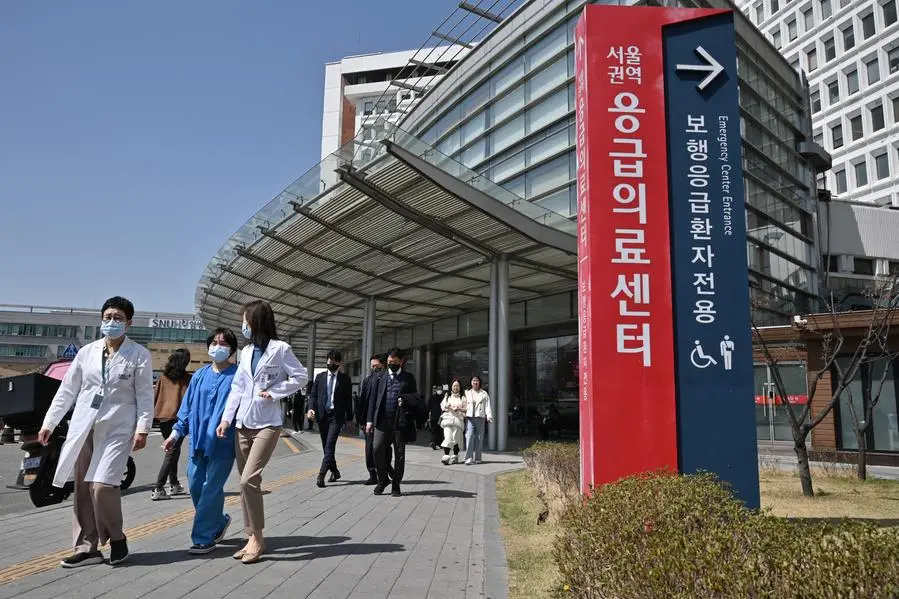PHOTO
South Korea's government on Friday offered its first concession to striking doctors in an effort to end a two-month-long walkout prompted by proposed increases to medical school enrolment.
Hospitals have been forced to cancel crucial treatments and surgeries since thousands of trainee doctors walked out on February 20 to protest an increase in annual admissions by 2,000 slots, starting next year.
While the government says its plan would ease doctor shortages, medical professionals and trainees have said the changes will erode the quality of education and health services.
This week, the heads of six public universities suggested reducing the enrolment increase by up to 50 percent and allowing universities the autonomy to set their own admission quotas, as a potential way to end the strike.
Prime Minister Han Duck-soo told reporters Friday that the government "accepts the suggestions from the presidents of national universities".
For the 2025 academic year only, 32 universities will be allowed to recruit as few as 1,000 additional medical students, on top of their regular quota, or as many as 2,000 more, he added.
It remains unclear whether trainee doctors, who play a key role in emergency procedures and surgeries at general hospitals, will return to work following the offer.
The announcement comes after President Yoon Suk Yeol's conservative ruling party was dealt a crushing defeat in parliamentary elections last week.
The country's medical community is advocating for a thorough "reevaluation" of the reform plan, effectively urging the government to abandon it.
Junior doctors say the education reforms are the final straw in a profession where they already struggle with tough working conditions, and some have said they no longer wish to pursue a medical career, regardless of what happens to the reform plan.
Proponents of the plan say doctors are simply trying to safeguard their salaries and social status.





















